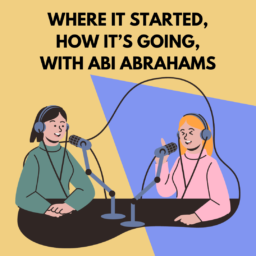“Is a digital marketing apprenticeship worth it?”
Ah, the age-old question. If you want advice from a complete stranger, ie me, then yes, yes they are… You can close this window now.
But, if you’d like a more impartial view then keep reading. I’m going to attempt to provide you with some pros and cons depending on your current situation. So, here we go.
Side note: Before we get going, there are only one or two apprenticeship standards nowadays that focus solely on digital marketing. Most apprenticeship standards are now more generalist in scope and although they do cover digital, they will also cover offline marketing as well. So, if you’re after a super niche digital apprenticeship then you may need to look at the level 5 Digital Marketing Manager or similar. However, most employers tend to focus 80/20 on digital marketing, so I wouldn’t worry about doing the generalist marketing apprenticeships.
Preface
Listen, you’re your own person. There will be tonnes of factors that you’d need to think about when deciding whether a marketing apprenticeship is worth it for you. At the end of the day, it’s an entirely subjective thing and only you will be able to answer whether they’re worth it. But, I’ll attempt to provide you with some of the reasons why they are worth it in general.
I’ve approached this from an educational standpoint. I’ve split it down into categories of coming from college, university, and retraining (whatever your education level). However, here are some quick rules of thumb:
- Is experience or a qualification more important to you?
- Are short-term or long-term progression more important?
- Do you mind making potential short-term salary sacrifices?
- Do you want hands-on learning or theory-based learning?
Anyway, let’s begin.
The apprenticeship qualifications themselves
Firstly, if you’re going into an apprenticeship for the little piece of paper at the end, I’m afraid you’re going into it for the wrong reasons. If you just want marketing qualifications, you’re probably better off studying towards a CIM, CMI, or one of the other popular marketing qualifications. However, the issue is that most of the accredited qualifications won’t provide you with any real-world experience.
A common question I get around apprenticeships is “What do the levels mean?”. So, to elaborate on the apprenticeship levels they equate to:
- Level 2 (Intermediate): Equivalent to GCSEs.
- Level 3 (Advanced): Equivalent to A-levels.
- Level 4-5 (Higher): Equivalent to a foundation degree or first year of a bachelor’s degree.
- Level 6 (Degree): Equivalent to a full bachelor’s degree.
- Level 7 (Master’s): Equivalent to a master’s degree.
Most marketing apprenticeship standards range from levels 3 – 6 with the new level 3 Multi-Channel Marketer apprenticeship being the most common amongst the array of programmes. Other programmes include Marketing Executive level 4 and Marketing Manager level 6.
Before I move on to the next section I will reiterate my previous point. If you want qualifications, go and get one from one of the professional bodies. Apprenticeships are focused on the primary goal of gaining real-world experience. The qualifications you get at the end of an apprenticeship are nice, but, they should not be the focus of why you’re considering one.
For A-level completers
If you’ve just finished your A-levels and you’re not feeling the pull toward university, a digital marketing apprenticeship is a brilliant alternative. You get hands-on experience and qualification/s while earning a salary. Quite honestly, one of the biggest pulls here is there’s no debt hanging over your head! General benefits include:
- Gain hands-on experience from day one, which employers value highly.
- Earn a salary without the debt associated with university.
- Work toward industry-recognised qualifications while building a portfolio.
- Build a network in the industry, opening doors to potential full-time roles.
- Get real-world insights into digital marketing channels like social media, SEO, and email marketing.
Some of the cons include:
- Potential lower starting salaries compared to other full-time roles.
- Balancing work and study can be challenging for some as you’ll be used to full-time study.
- May miss out on the traditional “university experience” and social aspects.
However, one of the biggest benefits is the fact that you’re gaining access to the side door. What I mean by this is simply that most marketing roles will require you to have a degree or X years of experience, both of which you likely don’t have. A marketing apprenticeship will give you the cheat codes to landing your first marketing role and kickstarting your career.
For graduates
Side note: Before I start, I’m going to preface this section by assuming that you don’t have a degree in marketing. The reason is if you do have a marketing degree it’s unlikely any training providers will enrol you on a marketing apprenticeship. Long story short, it has to do with the way funding works and they effectively won’t get any money for training you. Sorry to be the bearer of bad news.
Let’s say you’ve graduated with a degree in a non-marketing field, like English, psychology, or graphic design, and you’re interested in shifting into digital marketing. A digital marketing apprenticeship can be the perfect bridge into the field, giving you practical experience and building knowledge in areas that might be totally new to you. Instead of starting with an unpaid internship or entry-level position that lacks structure, an apprenticeship offers a clear, guided path. You’ll earn a salary, work on real campaigns, and come away with skills that add immediate value to your resume. General benefits include:
- Provides structured, hands-on training in key areas like social media, SEO, and content creation.
- Offers a paid entry into marketing, avoiding the financial strain of unpaid work.
- Gives real-world insight into how marketing principles are applied in business settings.
- Builds a professional portfolio of work experience, which is critical when moving into a new field.
- Develop technical skills, like analytics and digital tools, that complement a non-marketing degree.
The cons could include:
- You may be completely changing direction and starting that process of learning again may be intimidating.
- Potential perception that an apprenticeship is “starting over” rather than moving forward. (PS, this is utter BS.)
- Will require adjusting to a hands-on structured training approach which can be difficult to adjust to.
And again, as I mentioned above in the A-level section, marketing apprenticeships allow you to cut the line and avoid competing with candidates with marketing degrees and experience. A win-win if you ask me.
For career changers or retrainers
For anyone looking to switch careers, a digital marketing apprenticeship can be a fast track to skills and certifications without the need to start from “scratch”. It’s flexible enough for people with work experience, and it keeps you ahead of industry changes. Plus, digital marketing is a field that thrives on experience over titles, so your existing work skills can easily transfer. Other benefits include:
- Fast-track into a growing field without the need to return to full-time study.
- Build practical skills that are in demand across many industries.
- Leverage existing work experience, which can add value to a marketing team.
- Stay current in an evolving industry with up-to-date tools, techniques, and trends.
- Open up flexible work options, as digital marketing roles often support hybrid or remote setups.
The cons could include:
- Can be a significant pay cut if transitioning from a higher-paid industry. Our typical salaries range from £16,000 – £22,000 with some exceptions.
- Requires adjusting to a potentially junior role despite years of professional experience.
- Keeping up with digital trends and new technologies can be intense, especially for those new to the field.
Aaaand again, for someone coming from outside of the field, marketing apprenticeships will allow you to land roles that otherwise you may not even have a chance with. If you’re up against candidates with marketing qualifications, degrees, or experience, you’re probably getting pipped to the post 99 times out of 100.
So, to summarise
A digital marketing apprenticeship can be a smart move for many, no matter your background.
- For A-level completers, it’s a debt-free way to gain hands-on experience while earning a salary.
- Graduates from other fields can use apprenticeships to bridge knowledge gaps and transition into marketing with structured training and industry exposure.
- For career changers, it’s a chance to quickly retrain and gain in-demand skills without starting from scratch.
With apprenticeship levels ranging from GCSE-equivalent to master’s degree-equivalent, there’s a clear pathway for everyone to develop professionally in the digital marketing field.
But, as I said at the start of this article, you’ll need to do your own soul-searching and research in order to decide whether an apprenticeship is for you. However, if you do have any questions, why not get in touch and we can give you our honest two cents as to whether a marketing apprenticeship will be right for you?
Interested in seeing more of our guides, advice, and articles on marketing apprenticeships?
Then sign up for our monthly newsletter. We’ll send you all the information on our latest stuff and general updates as well. Sign up below!

















